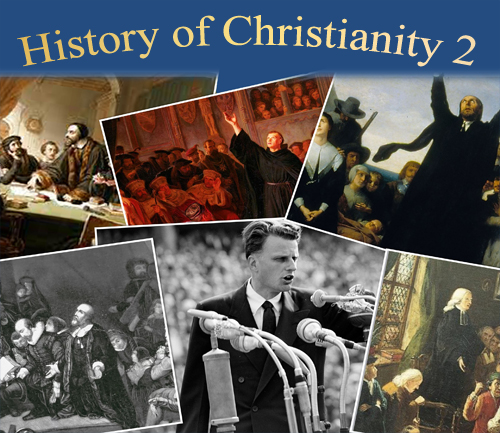Module 5: Continuing Reformations
Hi everyone, and welcome to the fifth module of the History of Christianity 2 Course. In this section, we'll be working through some other subsequent movements of reformation in Europe. These were the continuations of the reformations we have already covered, at least in some sense. But they were distinct movements, with distinct histories, and different lessons for us to learn. This module will cover the beginnings of the English Reformation, including the English monarchy of the time, which strongly influenced that reformation. And it will cover the theological controversy between two groups later called the Arminians and the Calvinists.
This module will help you to understand the reasons behind the changes in the church of England and the results that came from these changes. And it will cover significant theological ideas from that time period and how influential those ideas and controversies have been for subsequent history, even until today.
The student will be exposed to controversies and different options for theological understanding and church organization and practice. And the student will have opportunity to evaluate these ideas and actions and the lessons that can be learned from all of these various movements and their outcomes. This module will also aid the student to work through how the lessons learned can be applied in their own life and ministry.
Introductory Scenario
Imagine that you are in the middle of a controversy between two sides with dramatically different views. How should you respond? How should you decide between the two sides? How should you deal with the group with which you agree? How should you deal with the group that disagrees with the position you think is best? How would your responses differ if you had no influence over either group, compared to your responses if you had influence? What principles should guide all your decisions and actions? Please consider these questions and be watching for material that will help you answer them as you work through this module.
Module Objectives and Outcomes
Upon successful completion of this module, the student will:
- Describe the reasons why the church of England broke from Rome and the results this had for politics, society, and church in England.
- Understand the changes that happened in the church in England and how this compared to the various Reformations that happened in other places.
- Describe the Elizabethan settlement, why it was significant, and the results that came from it for English society.
- Understand the history of the debate between Arminians and Calvinists and the outcome of the Synod of Dort.
- Accurately describe the five points of doctrine taught by the Remonstrance and the five points given in response by the Synod of Dort, and evaluate these teachings in contrast to the opposite side.
- Place the major events of the English Reformation and the Arminian/Calvinist debate in a general chronology.
Instruction Guides
In this section, you'll find links to important instructional documents for this module. Click the following links to open each document. There is a set of instructions for individual study and a document for group study.
Textbook Content
In this section, you'll find a study guide for the textbook reading for module 5. And then you'll find the link to a practice quiz covering this textbook reading.
This section also contains a review quiz to test your understanding of the textbook material for this module. By clicking the banner below, you will be given a series of questions, in random order. The quiz will be different each time, so feel free to take it more than once.

Click the button next to the best answer for each question, or drag each term to its best definition. Then press the Submit
button at the bottom to see if your answers are correct.
Lecture Content
In this section, you will find the video lectures for the Continuing Reformations module. They are designed to be watched in order, but each video should make sense on its own. Click each banner to open access to each video. There are also links with each video if you prefer to watch on the Rumble or YouTube interface or download just the audio to listen offline.

































